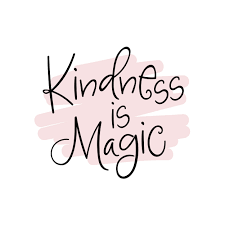
Nurturing Kindness
We’ve been talking about Margaret Wheatley’s concept of being an Island of Sanity. She says, “An Island of Sanity is a gift of possibility and refuge. It is a true island because it sets itself apart from the destructive dynamics, policies, and behaviors that are afflicting people on the mainland.”
She goes on say that creating the conditions for generosity, kindness and creativity are essential on this island. Why? Certainly, there are other important qualities like intelligence and compassion? Yes, she says, but these three are essential to “developing trustworthy relationships free of judgments and biases where everyone’s talents and perspectives are valued.” Sadly, our current culture does not generally support this concept.
Kindness is the second thing on Margaret Wheatley’s list of things to nurture. Even Paul in Colossians 3:12 wants to impart the importance of kindness upon Jesus’ followers: “Because you are God’s chosen ones, holy and beloved, clothe yourselves with heartfelt compassion, with kindness, humility, gentleness and patience.”
What is kindness? It differs a bit from generosity. Kindness is about being friendly, considerate, respectful and thoughtful. It is about caring for other people’s feelings. Kindness is authentic and genuine.
Margaret Wheatley, in Restoring Sanity, defines kindness as
“an offering to others, a way of extending yourself that asks nothing in return. It is kind to be present. It is kind to be open and curious. It is kind to be respectful. It is a great kindness to keep our judgments, biases, and opinions to ourselves, to refrain from inserting them into the work or allowing them to distort our relationships. And we are being kind to ourselves when we commit to clearing our filters. Others benefit, but so do we – life gets much more enjoyable and easeful.”
When asked on Sunday morning how many folks expect kindness when they are out and about in the world, only a handful said they did.
I was at a coffee shop earlier this week and a woman was trying to get out to the patio with her hands full. I jumped up from my table and went to open the door. No big deal. But she responded in a surprised and grateful way, “Oh, thank you, that was very kind.”
I had hardly even thought about it, but it meant something. A little warm fuzzy in the midst of an often uncaring world.
It doesn’t take much to be kind. A smile, a compliment, a greeting or a thank you all qualify. Opening a door, picking up a dropped item, bringing in someone’s garbage can from the street, sending a card all qualify.
I realize for many of you kindness is a no-brainer. You do this, almost without thinking. I’d suggest that the thinking is an important part of it. Let’s look consciously for ways to be kind, not only to others but to ourselves and the people we live with as well. And let’s pay attention when someone else is kind, take heart from that, and remember that there is good in the world!
Yes, sometimes it is hard to be kind even when we see the opportunity. Sometimes we’re afraid of rejection, afraid of offending someone, afraid of someone who looks or dresses differently from us. Sometimes we may even be afraid for our safety. When this happens, I encourage us to consider whether it is a legitimate concern or we’re just looking for the easy way out? Having someone say no, I don’t need your help, isn’t the end of the world. And perhaps it will be important to them just to know that someone offered.
So, I’ll admit that there are some days when I’m all out of nice and kindness by dinnertime. I’m exhausted, short, hungry, and lacking in good humor. But somehow my ability to be kind always seems to regenerate overnight. Thank goodness! Still, it’s good to know when you’re at your wits end and have nothing more to give. Those are especially the times we need to be kind to ourselves.
Jesuit historian John O’Mally once told a story about an older Jesuit he had once known who shared that there were three rules for getting along in Jesuit community. One, you’re not God. Two, this isn’t heaven. And, three, don’t be a “jerk” (originally in saltier language using a synonym for a donkey.)
While the first two would probably make really good sermons, it’s the third one I found spot on for this topic. Don’t be a jerk should be one of the top rules of kindness.
It’s too easy these days to hide behind the distance of a text or FB post or tweet and say nasty things. Whatever happened to “if you can’t say anything nice, don’t say anything at all”?
I’m going to make the assumption that all of us want to be considered kind people. So, how do we nurture kindness in ourselves? There are many ways, but let me suggest three:
- Remember that everyone wants to feel like they matter. Everyone wants to feel welcomed and like they belong. Everyone appreciates a kind word. Everyone likes acknowledgment that they exist – I like your haircut, wow it’s windy outside, your children are beautiful, have a nice day.
- Be aware, pay attention to how we act, what we see, when we judge. Watch for kindness in ourselves and in others… as we do this, we become conscious of the difference it makes when we, or others are kind.
- Think of kindness as a muscle that needs to be exercised. Use it every day. Watch for a way to be kind, even (or maybe especially) if it is with someone in your household.
As we go out into the world, may we clothe ourselves with kindness, may it be our superpower cloak helping us to bring positivity, warmth, care and hope to the world.
Love & Light!
Kaye



